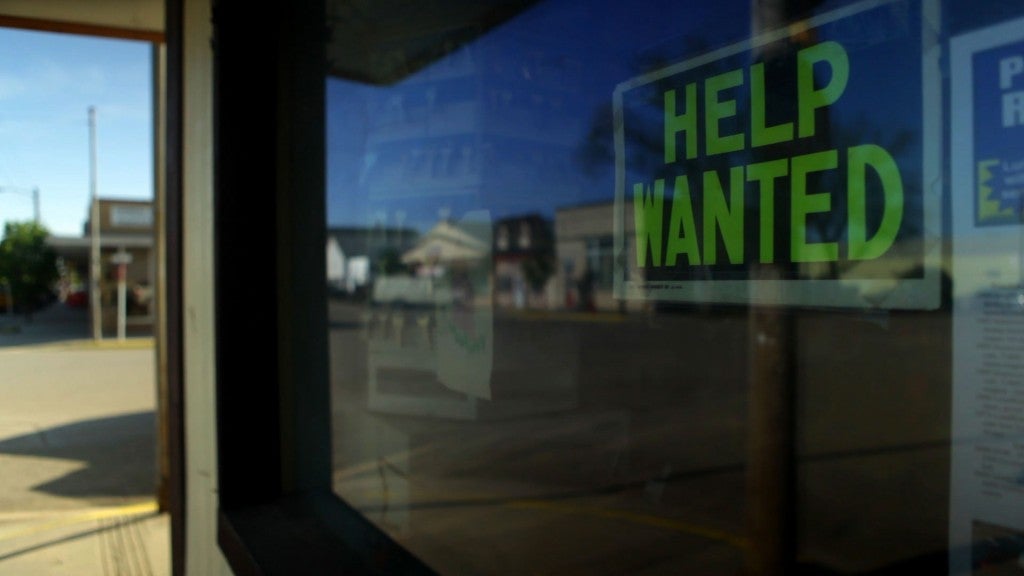In a recent New York Times column, a professor of economics argued that the reason we’re mired in economic malaise is that we’re too productive.
Ever-increasing productivity means that if our economies don’t continue to expand, we risk putting people out of work.…What, then, should happen when, for one reason or another, growth just isn’t to be had anymore? Maybe it’s a financial crisis.
It would be difficult to overstate the absurdity of this worldview. The idea that producing more with less is somehow bad for the economy is as backward as the idea that bloodletting heals the sick. As George Orwell once quipped, some ideas are so preposterous only an intellectual could believe them.
Every age of advancement in human history—from the Stone Age, to the Bronze Age, to the Industrial Age, to the Information Age—has been the result of productivity gains. Yet no one argues that such advancement caused unemployment. Why would it now?
Professor Tim Jackson might respond that higher productivity is vital long-term, but that in the short-term, when we have high unemployment, it’s more important to have jobs than productivity growth.
The trouble with this argument is that it ignores the key to economic recovery: In recessionary times such as now, short-term productivity gains culminate in profits, which are re-invested and then put upward pressure on the demand for labor—converting that profit from investment to higher wages. Put simply, the professor’s idea distorts the very recovery mechanisms of the free market.
By increasing productivity, human labor is saved, freeing up workers to be employed elsewhere in the economy. Additionally, time is saved by employing the most productive means for accomplishing tasks: By cutting the grass with a lawnmower rather than a pair of scissors, a worker can use more time on another activity, such as leisure or additional work.
Nevertheless, Jackson offers that we should work less as a solution to our productivity “problem”:
One solution would be to accept the productivity increases, shorten the workweek and share the available work.…The New Economics Foundation, a British think tank, proposes a 21-hour workweek. It may not be the workaholic’s choice. But it’s certainly a strategy worth thinking about.
But there’s another strategy for keeping people in work when demand stagnates.…By easing up on the gas pedal of efficiency and creating jobs in what are traditionally seen as “low productivity” sectors, we have within our grasp the means to maintain or increase employment, even when the economy stagnates.
His solution, then, is either a voluntary reduction in wage growth or a halt to the profits-to-jobs linkage described above. If the goal is to create low-productivity jobs at the expense of economic growth and recovery, this recipe makes sense, but if the goal is job and wage growth in tandem with recovery, this recipe is entirely counterproductive.
In sum, aiming for lower economic productivity is ultimately an anchor holding down the economy. The professor’s solutions impede natural recovery processes for the sake of creating low-productivity employment, and have no sound economic basis and no possible outcome other than stagnancy.
Milton Friedman put it best. While travelling in another country, he observed workers using shovels to build a bridge. When he asked why the workers were using shovels rather than machinery, his host responded, “because using machinery would result in fewer jobs in the construction industry.” “Oh,” Dr. Friedman replied, “I thought you were interested in building a bridge. If you want to create more jobs, why not give the workers spoons instead of shovels?”
